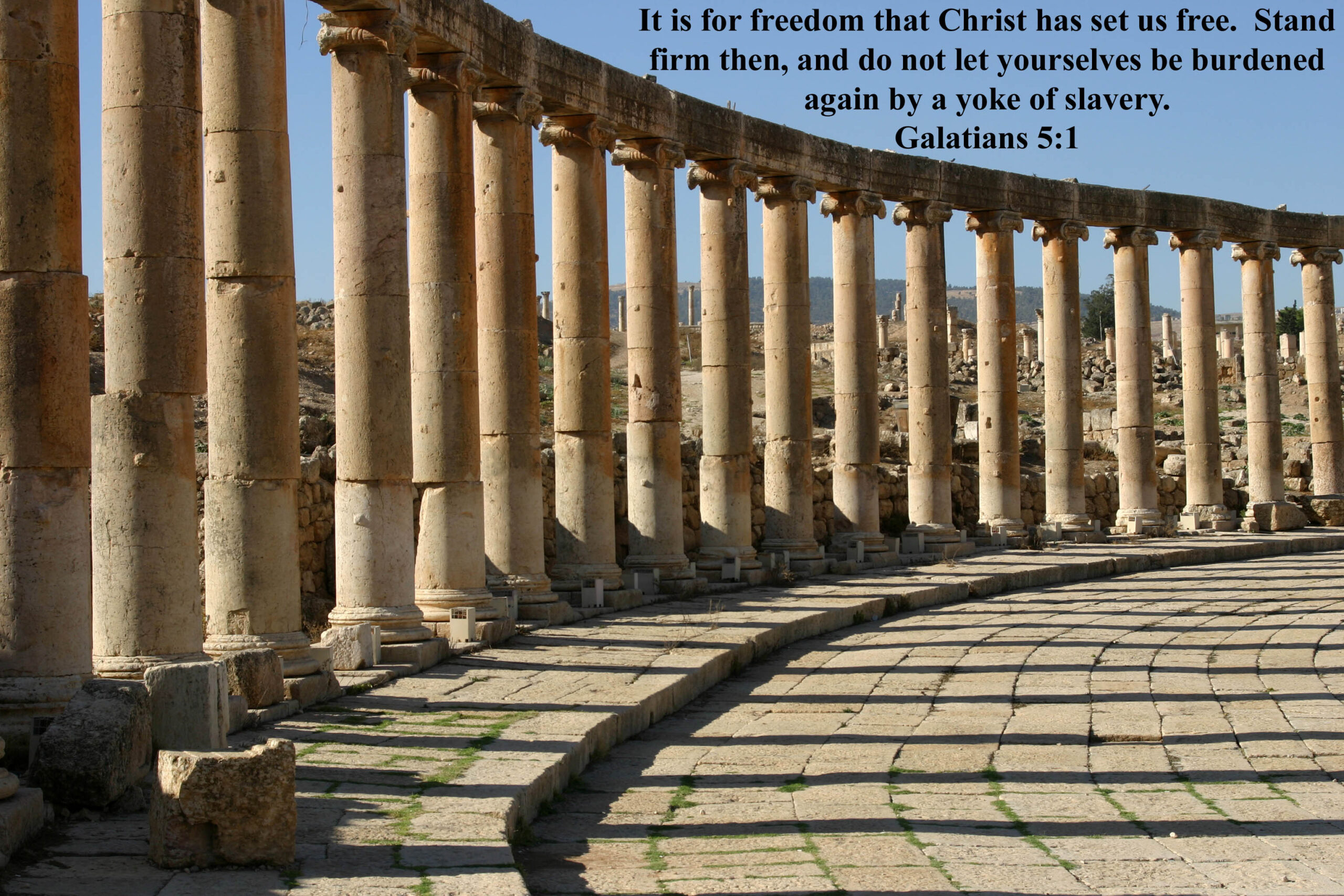The Apostle Paul is the first theologian of the Church. He was not a disciple of Jesus, and he never had the advantage of living and working with the Lord in his earthly sojourn. But Paul did have first-hand training from the risen Christ according to Galatians 1:11-12, 15-18, and 2:2. With an excellent background in the Law and traditions (Acts 22:3), personal instruction from Jesus and a special commissioning from the Holy Spirit (Rom. 1:5; Gal. 2:8) Paul was fully prepared for his writing as well as his missionary activities.
Our first real encounter with Paul’s apostolic teaching is found in Acts 13 and his first missionary journey with Barnabas. His lesson in the synagogue at Pisidian Antioch (Acts 13:13-41) begins with the exodus (Acts 13:17) and quickly comes to David and then to Jesus (Acts 13:22-23). The way he takes is curious. He does not refer directly to the Davidic covenant or its terms, but instead announces Jesus this way:
“From this man’s seed, according to the promise, God raised up for Israel a Savior—Jesus— after John had first preached, before His coming, the baptism of repentance to all the people of Israel.” – Acts 13:23-24.
As we saw in Volume One of this study the Davidic covenant does not contain any note of a promise of salvation from sin in its terms. But Paul here is drawing a natural and no doubt common inference that the covenant implied that such a salvation would come, and the Scriptures indicated that it would come through a Savior (Gen. 22:18; Psa. 22:31; Isa. 9:6-7; 49:5; 53:6). The ministry of John the Baptist (which presumably was known about even in Pisidia) is mentioned because he preached repentance to Israel in view of the Coming One. The Abrahamic note is struck in verse 26, and then he proceeds to assert that the Jewish scholars at Jerusalem were ignorant of (agnoeo) Jesus because they were ignorant of their own prophetic literature: quite a charge! (Acts 13:27). Thus, the promised One was killed, but God raised Him up again (Acts 13:30-33). Now the theme of kingship is brought up via Psalms 2:7 (Acts 13:33) and 16:10 (Acts 13:35), while applying Isaiah’s “I will give You the sure mercies of David” (Isa. 55:3) to God’s justification of Jesus in raising Him up (Acts 13:34). It is through Jesus that forgiveness of sins is now available to Israel (Acts 13:38-39). A final quotation from Habakkuk 1:5 serves as a warning against unbelief (Acts 13:40-41).[1]
This sermon presupposes the covenants with Abraham, David, and, since salvation comes through it, the New covenant in Jesus (Paul does not refer to Him as the Christ here, although some of his arguments in his Epistles depend upon that title – e.g., the many uses of “Christ Jesus” throughout the Pauline literature). Sadly, the majority of the Jews rejected Paul’s message and reacted to it with hostility (Acts 13:45). It seems they did not much care for Paul sharing the good news with the Gentiles. In his rebuke Paul cites Isaiah 49:6 – a covenant passage (see Isaiah 49:8!). Yet despite this unpromising response he always held on to a hope for the twelve tribes, even after the establishment of the Jew/Gentile Church (cf. Acts 26:7).
Paul’s Preaching on the Kingdom of God
On several occasions we read of Paul preaching about the Kingdom of God. In Acts 14:22 it is clear that the kingdom is yet future. It is the messianic or New covenant kingdom. Then in Acts 17:7 the Jews from Thessalonica accused Paul of saying that a king other than Caesar should be served. It may be that all that was being preached was that Jesus is Lord and this was spun by the Jews to make Paul into a revolutionary, but it is possible that he was heard preaching the coming Kingdom of God. In Acts 19 we read of the Apostle, “reasoning and persuading concerning the things of the kingdom of God” for three months in Ephesus (Acts 19:8). Without Luke telling us more we cannot be certain whether this preaching concerned the future kingdom or its appearance in the form of Jesus at His first coming (or indeed in some other form). We have seen that in the majority of cases Luke has in mind the eschatological kingdom[2] as he was teaching in a synagogue it seems safe to assume that he was not equating the kingdom with the Church!
If I leave aside the passage in Acts 20 for the moment the last time the Kingdom of God is found in Acts is at the end of the last chapter. There we read that,
So when they had appointed him a day, many came to him at his lodging, to whom he explained and solemnly testified of the kingdom of God, persuading them concerning Jesus from both the Law of Moses and the Prophets, from morning till evening. – Acts 28:23.
In the last verse of Acts Luke leaves him
“preaching the kingdom of God and teaching the things which concern the Lord Jesus Christ with all confidence, no one forbidding him. – Acts 28:31.
In these places we see that Paul’s teaching of the kingdom is consonant with his teaching about Jesus. Has the kingdom arrived? Yes and no. No if what is meant is the great kingdom in which Messiah reigns from Jerusalem and Israel is blessed above all nations. But yes if what is meant is that Messiah has indeed come.
Acts 20 has the scene of the gathering of the Ephesian elders at Miletus and Paul’s farewell. He refers to “the ministry [he] received from the Lord Jesus, to testify to the gospel of the grace of God.” (Acts 20:24). This is of course a reference to the Gospel (cf. v.21). But then he mentions the kingdom:
And indeed, now I know that you all, among whom I have gone preaching the kingdom of God, will see my face no more. – Acts 20:25.
This statement is followed up by Paul’s reminder that he has declared to these pastors “the whole counsel [boule] of God” (Acts 20:27). The word translated “counsel” in verse 27 is boule which is rendered “purpose,” “plan,” or “will” – of God in Acts 4:27-28; 5:38-39, and 13:36. In this setting “counsel” fits well since God’s “purpose” has been revealed, but we should retain the notion of intent. The boule is not the Gospel only, but the entire project within which Jesus makes sense.[3] I take it then that the preaching of the Kingdom of God” here is the Creation Project that incorporates Eden and the Fall, the covenants with Noah, Abraham, Moses, and David, the messianic prophecies that accompany them and give mutual support to them, and of course the incarnation, death, and resurrection of Christ and its eschatological meaning.[4]
[1] The use of Habakkuk 1:5 with its language of wonderworking was apposite even though the original was concerned with the impending Babylonian conquest. See F. F. Bruce, The Book of Acts, 279.
[2] E.g., Luke 1:33; 4:43; 6:20; 7:28; 9:62; 11:2; 12:31-32; 13:18, 29; 14:15; 18:17; 19:11; 21:31; 22:16, 18, 29-30; Acts 1:6; 14:22.
[3] It is well for pastor-teachers to make sure that the Gospel is set in a framework or story in which it makes the best sense, and this includes not only the biblical worldview but also the tenor and atmosphere most conducive to its telling.
[4] Hence, the “whole counsel of God” includes both teleology and eschatology.

